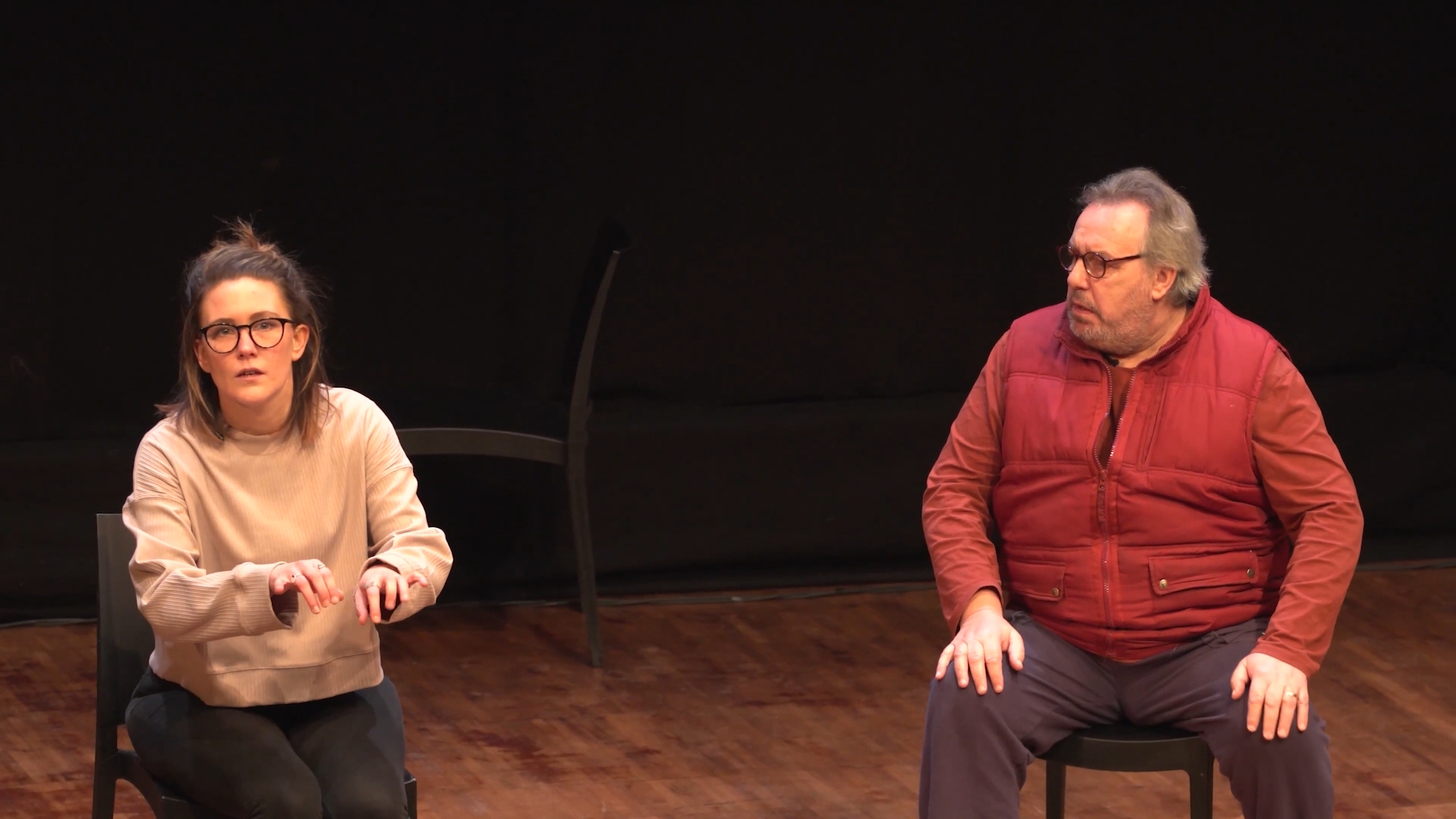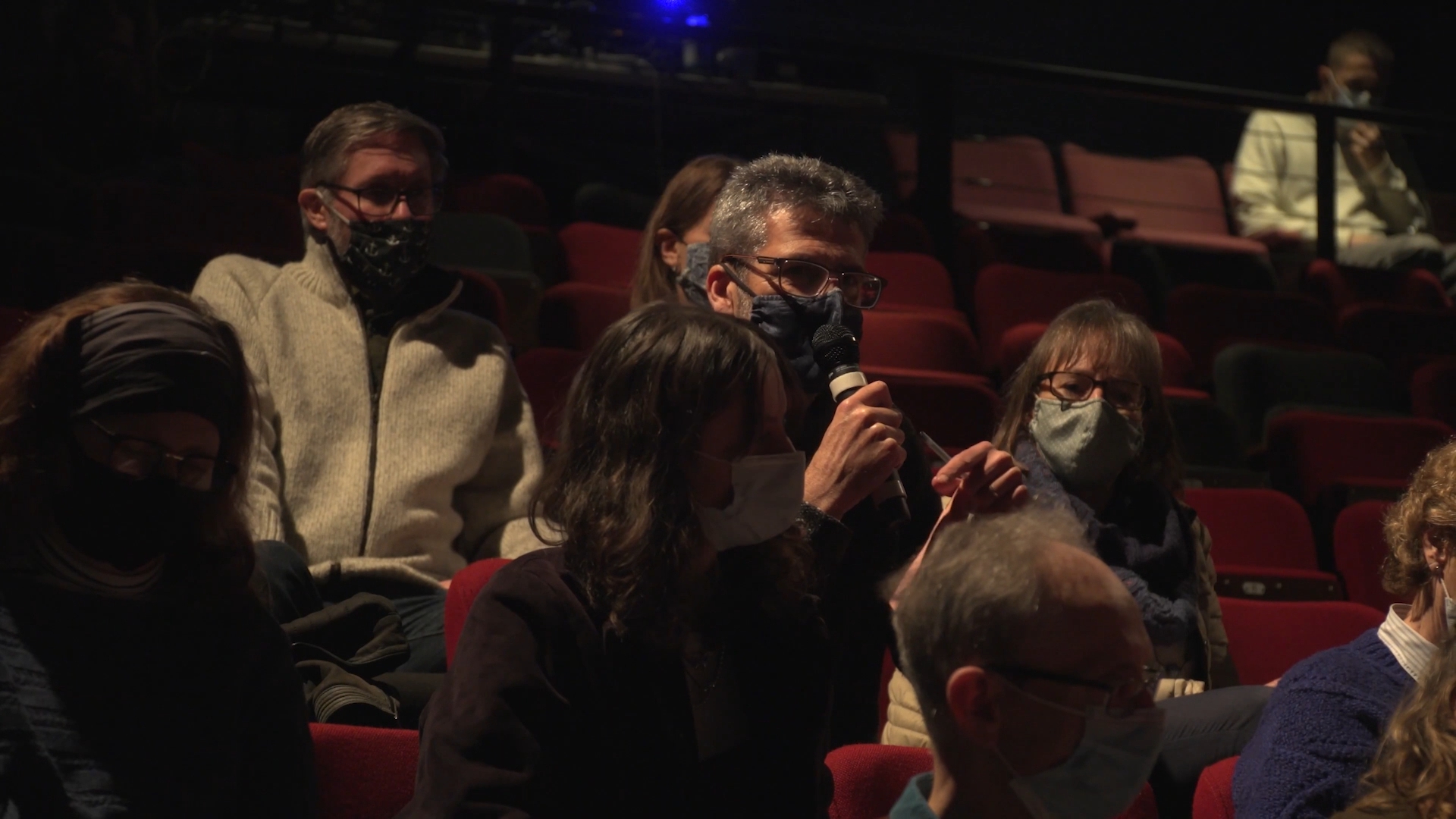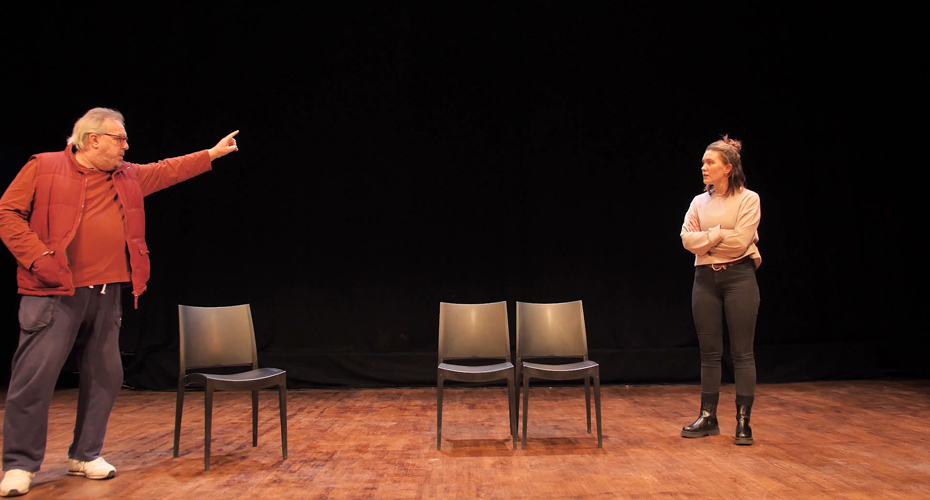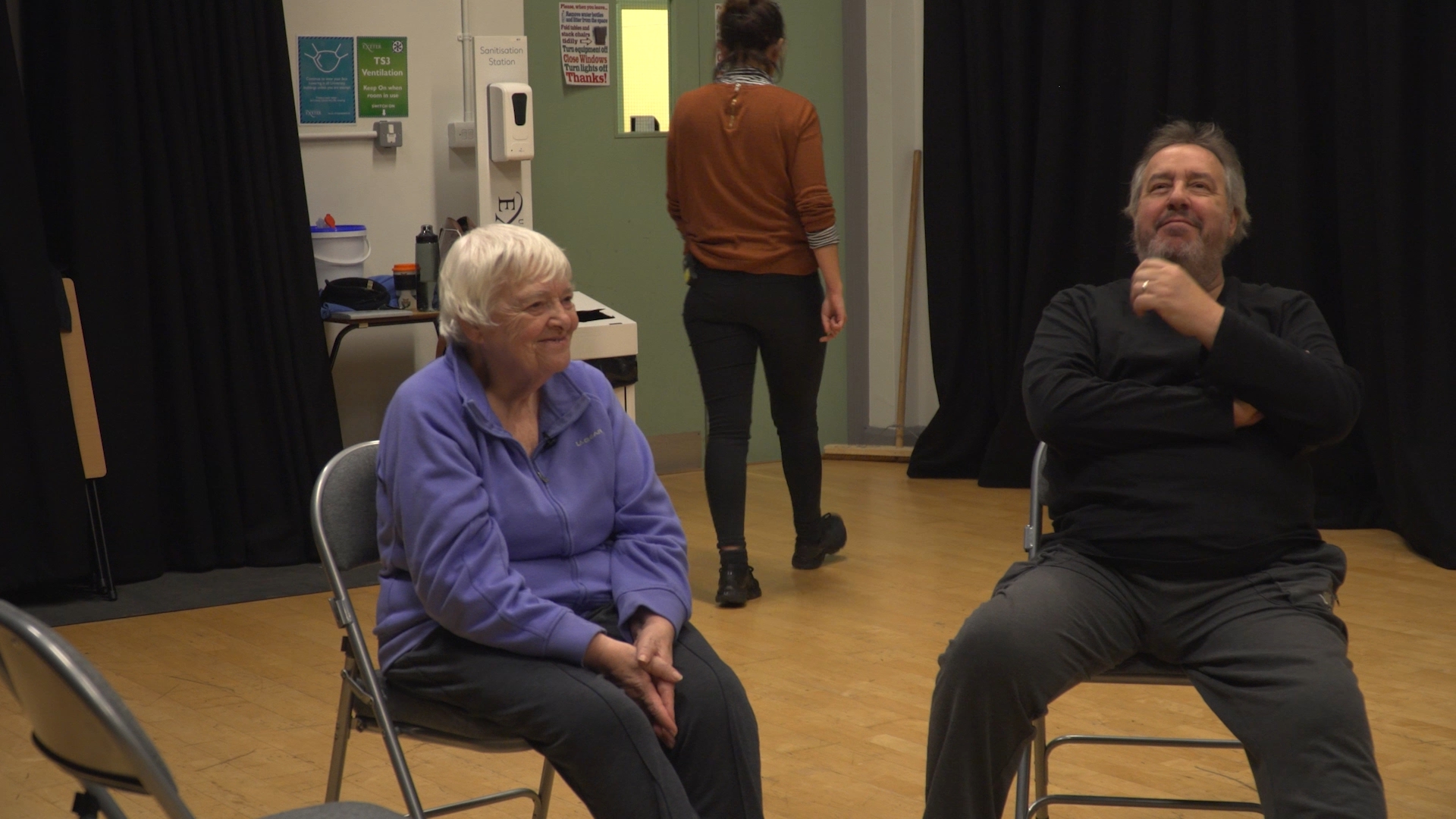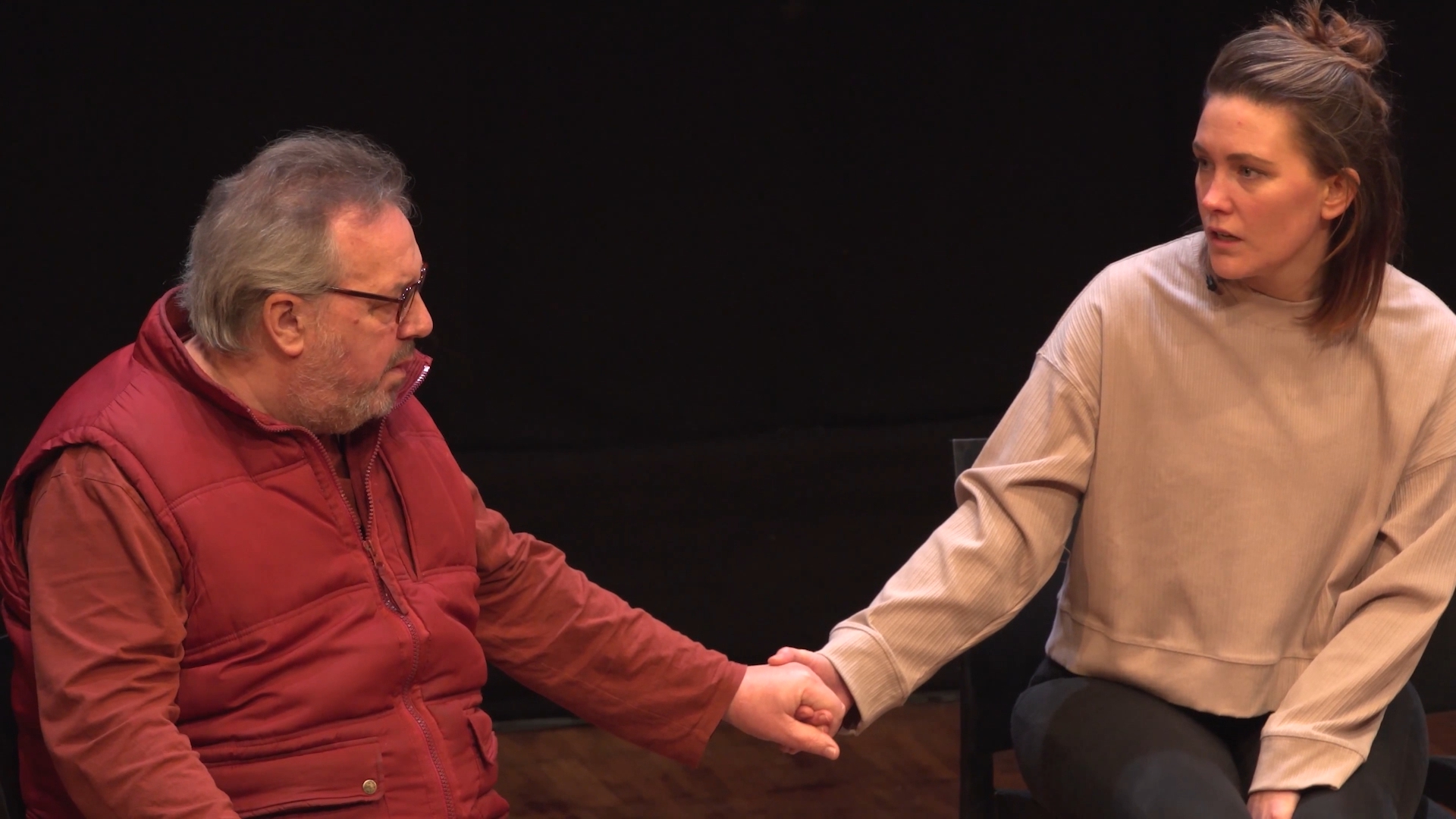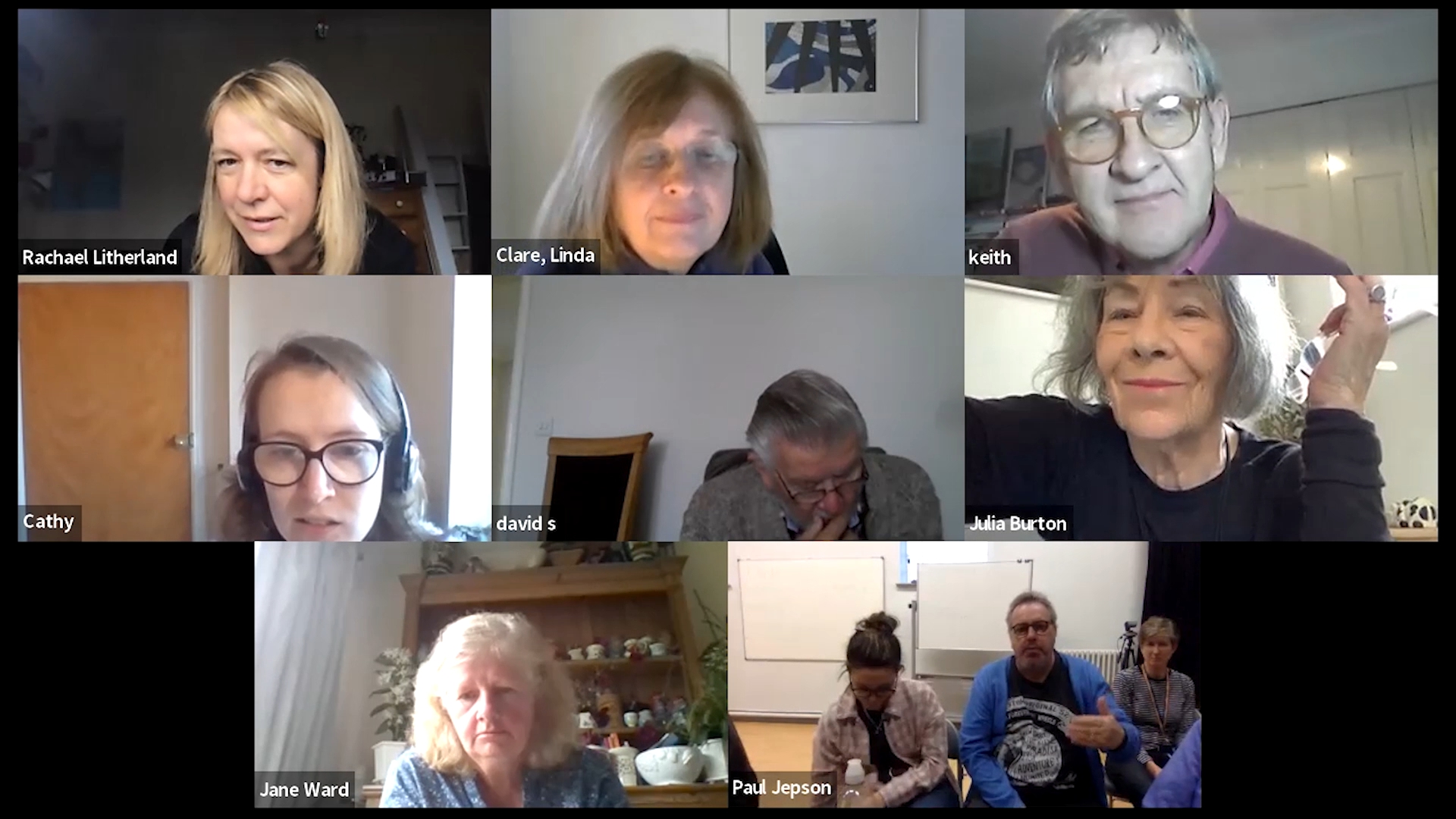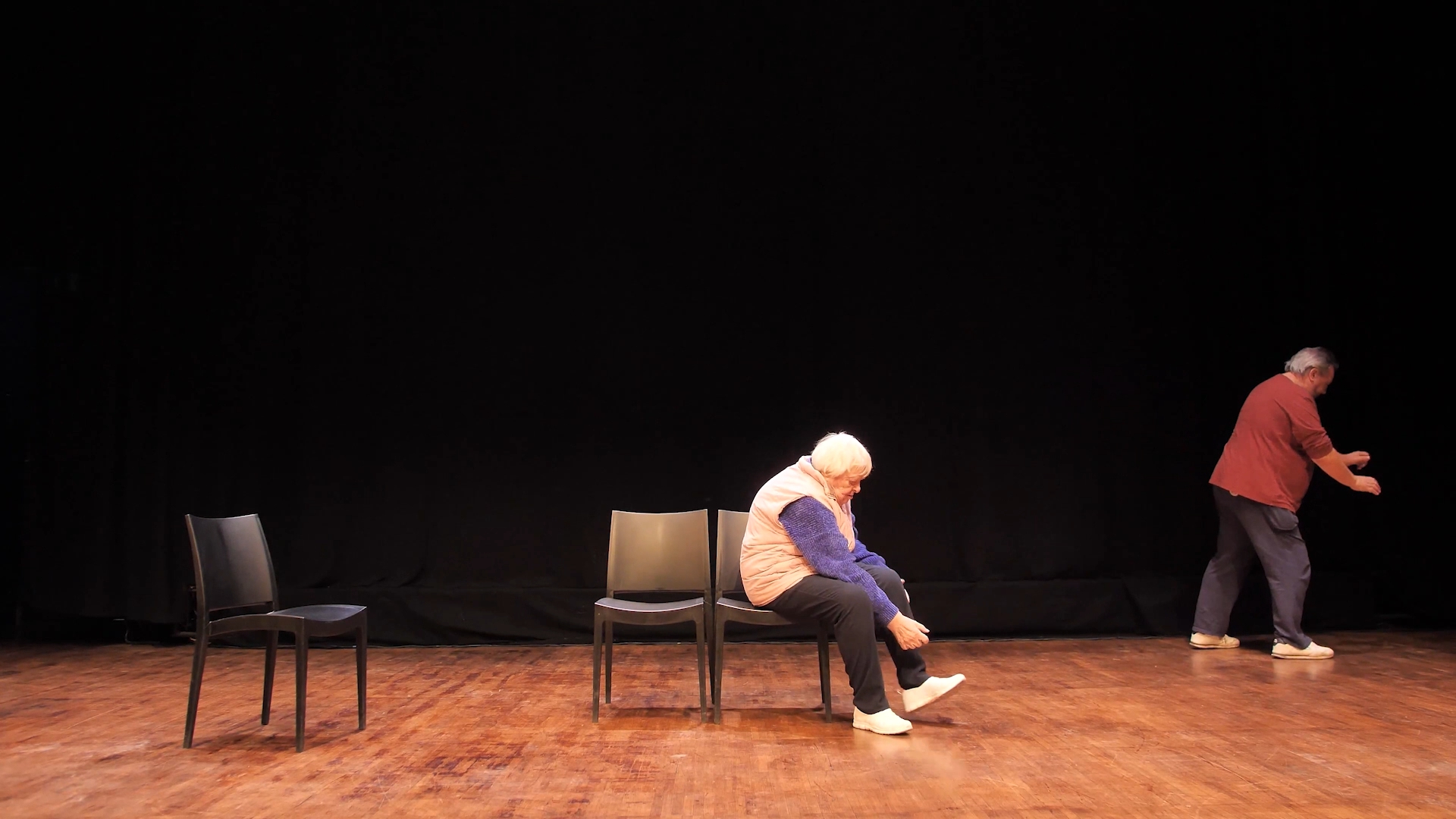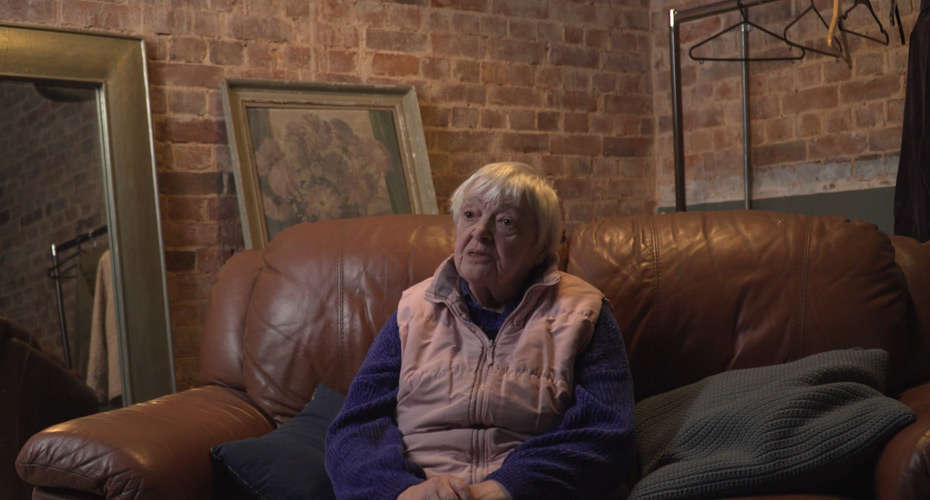The World Turned Upside Down
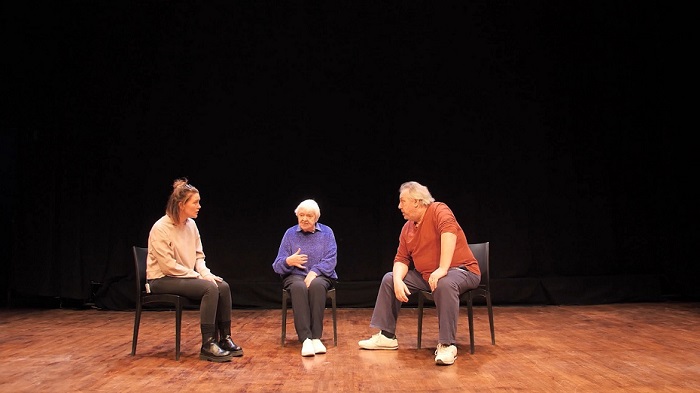
‘The World Turned Upside Down’ is a play that was staged in Exeter in January 2022. Below is a free film which shows both the play itself and the process of creating it.
‘The World Turned Upside Down’ is about communication around dementia. There are many situations involving individuals and their family members, or individuals and healthcare professionals, where the outcome relies on what is communicated, and how.
Good and effective communication is key to enabling a dementia diagnosis, supporting people to adjusting to living with dementia and accessing post-diagnostic care. This film explores these challenges.
This film invites you to reflect on:
- why and how conversations can go badly or work well
- what helps to maintain good conversations
Click on the video below to watch the film. This is freely available and we encourage you to share it, or to screen it for an audience.
We have also created a screening pack which is designed to help you start conversations among your audience, whether that’s family, colleagues, or peer supporters. There is also a 'Running a screening' pack to help you plan your own screening event.
Inside are suggestions for splitting the film up into separate scenarios and some suggested questions to help start the discussion. Please tell us how you’ve used the film and what you thought of it by emailing us at IDEAL@exeter.ac.uk.
Download The World Turned Upside Down screening pack here (PDF; 361kb).
Download 'Running a screening of The World Turned Upside Down' here (PDF; 232kb).
The film has been very successful and a number of blogs have been written about it.
- Alzheimer's Society published 'Watch "The World Turned Upside Down": A film about dementia and communication'. Click here to read it.
- Public Discourses of Dementia published 'Communication situations: What happens when you stage and screen dementia?'. Click here to read it.
- AlzAuthors.com published 'Film offers solutions for dementia's communication challenges'. Click here to read it.
- PenARC published 'Feelings and screenings: A reflective essay'. Click here to read it.
Individual scenarios from the film
Lecturers and people responsible for training professionals asked for videos of the individual scenarios to make it easier to use the film for teaching or training. There is a playlist containing all the scenarios on our YouTube channel and they are also available below.
The car keys scenario
The doctor's appointment scenario
The telling the family scenario
The caring for your mother scenario
The care home decision scenario


